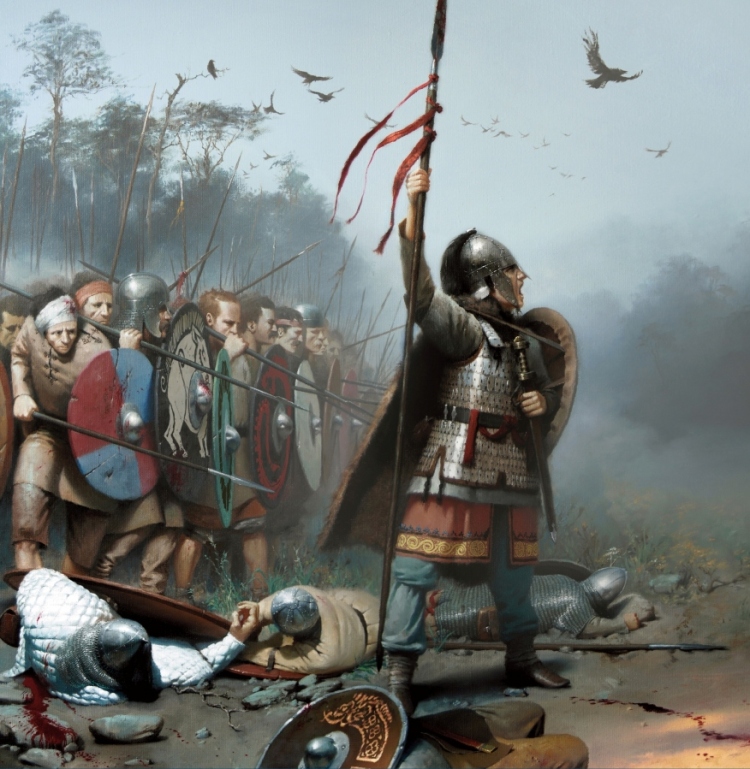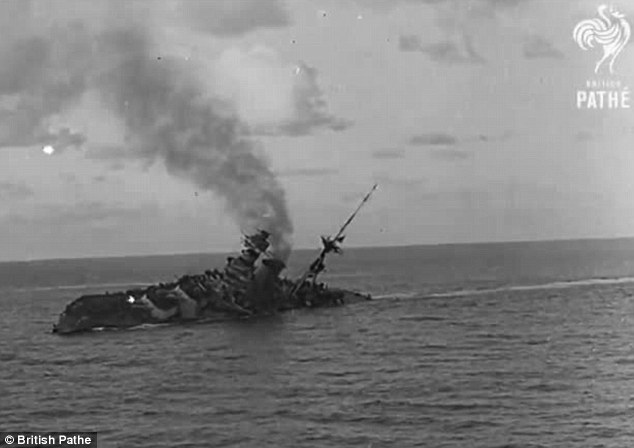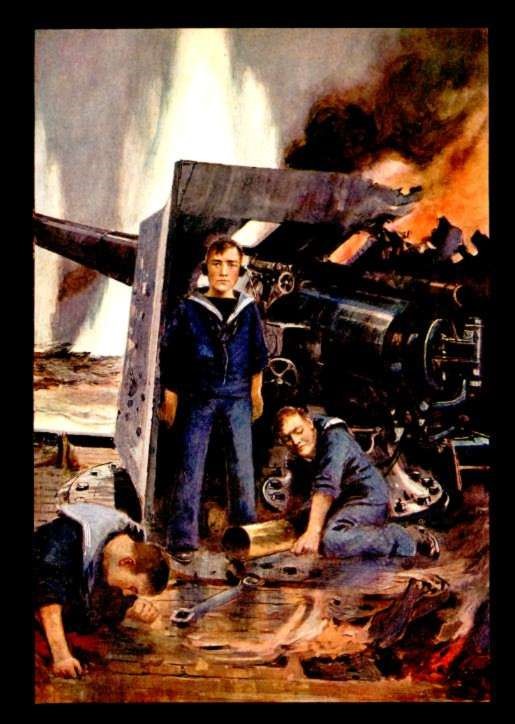There is so much nonsense written about King Arthur.
He did not exist in the way he has been written about. The only near contemporary reference to the name is in Aneirin’s elegies “Yr Gododdin”
written in Brythonic. In one verse he says of a warrior that he was great “but he was not Arthur” and that is all there is.
The struggles of the period led to the early kingdoms of the English and the Welsh.
Tennyson wrote a lot about these myths in Blank verse. So I thought I would give it a try.

Death of the Dux Bellorum at Camlann A.D. 537
“A weary man sat propped against a stone
A massive stone beside a plundered church
A plundered church within a sundered land
Where leaders feud as foreign foes advance
The weary man who dying from his wound
He held his painful side whence seeped his blood.
This Dux Bellorum of a dying land
Had failed his land and lost the last of Hope
With foreigners awaiting his demise
Whose numbers grew, as did their firm resolve
And his life now was wasted in the fight
The futile fight between opposing clans
Of Britons who saw Saxons closing in
Together with the Jutes and Frisians too
And Angles who attacked on land and sea.
The futile fight now hastened on their end
He gazed up at the sky and fading light
This was the twilight of his people’s power
The mutiny of those who served them once
Had driven them far back to west and north
But he had rallied men who seemed well beat
Had rallied them and shown them ways to fight
The crows he’d fed with Jute and Saxon flesh
And Ravens and the Wolves had waxed replete
And now those crows here circled overhead
So now it was his turn to be their food
The fox and badger might well pick his bones.
And through the fading light here loomed a man
A man who had somehow survived this rout
“Who is that who remains alive still now?
How many are the men who yet may live?”
“I’m Bedevere one of your loyal men,
Now there may be a score of us who live
A motley lot not fit now for the fight
They’ve all been brave and fought long in your wars
But all would now go home and face their lot
Their fighting’s done and finished in this feud
They will be overwhelmed now by the foe
And they must choose a servile life – or death!
But in death there’s an end to choice or chance.
As for myself I go now to my home
High in Dumnonia’s hills there to the west
To save all that I can within my land.
Your cause is lost. You wasted it in feud.
I’ll stay with you ‘til death has closed your eyes
And then my oath to you is at an end.
So tell me what was Mordred’s grievous fault
That we fought him instead of foreign foe?
And was he worth those broken shattered men
Who all lie dead amongst their scattered arms?
We all must live with folk we do not like
Not all of us see this as cause for war
Nor do we feud in doors in rage and heat
While cattle raiders plunder all our stock
Though you brought us success – all men know that!
At end you brought us here unto this waste
This waste of men who could have saved our land.”
The dying Dux Bellorum smiled at him
A wry and kindly smile that bore no rage
The time was past for rage and wrath and hate
He choked a little as he tried to speak
The pool of blood wherein he sat spread wide
Though all the world seemed misty now, more dark
And yet his mind was as it always was
Still agile in this bloody dying form
“You must not let the foreign foes gain arms
You say our arms are scattered here about
Go gather them, as they’re no use to us
No ghost nor wraith has ever yet born arms
But future foes who may yet come for you
Would find some use in what’s left here about.
Go toss them in a meare or murky pool
And take my sword and shield and toss them too
I would not have my arms left here harm you
A curse against our folk they soon would be.
Make sure the water’s deep that none might see
Before they rot to rust and are all gone
Take with you to Dumnonia what you would
Your hills may yet secure you from the foes
And you have life and so you yet have Hope
Be gone now let me die alone. I’ve failed.
Your life goes on and I must feed the crows”
And Bedevere and those few men with him
Did as the Dux Bellorum bid them to
They gathered up the arms from all the dead
They gathered them and tossed them in the Brue
And then they went their ways to hearth and home
Where grateful kin had welcomed their return
And in the winter nights they told their tales
Of how they followed that great man of war
Of how they held up an advancing foe
Each year the tales got longer than before
In time they were well woven into myth
The myths that got passed on to future times.
Their foes that rose to rule those lands of theirs
Took on their myths and glorified their deeds.
To glorify their war is folly now
Now that we know so little of those folk
Of how they lived and how their slaves had lived.
A few brave names have come down – legends all
But who’s to know what those folk may have thought?
They lived and that’s as much as we may know.
Whilst they are gone – The sands of time still flow.”
Trevor Morgan
Myths do not have to be true but it helps if they are ripping yarns.


